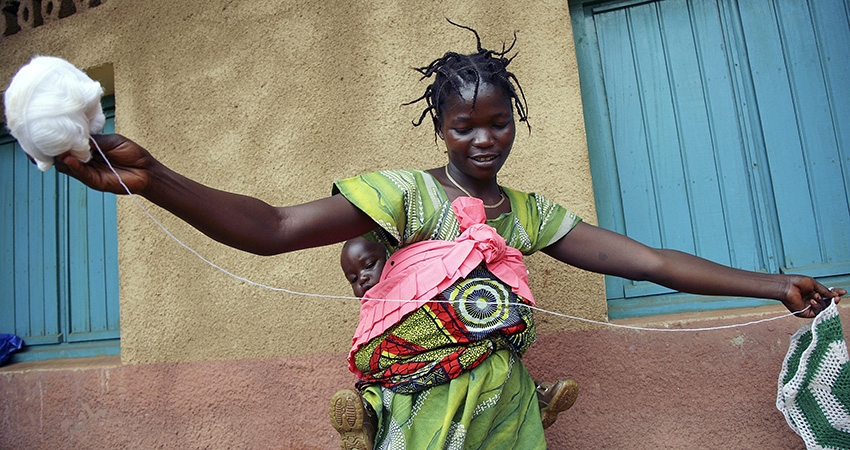Individualization of property rights and population pressure

Congolese woman (Photo by Martine Perret / MONUC, via UNmultimedia)
Focus of the study
In response to increased land pressure, customary land tenure systems continue to evolve toward more individualization and transferability of rights in many parts of sub-Saharan Africa.
This project aims to investigate how social norms related to inheritance evolve to accommodate greater levels of individualization, for example whether the distance to the land chief is reduced when scarcity increases. In addition, we investigate the within-family distributional consequences of this evolution toward more individualization. Since proximity to the family land chief is likely to be a strong determinant of access to land within a given generation in a family/clan, a shorter “generational” distance to the land chief may imply more unequal access to land. We use data collected in the Equateur Province in DRC, as well as historical events that introduced exogenous changes in pressure on the land and in individualization of the rights, to investigate these questions.
Broader motivation for the research
This project aims to contribute to the understanding of the evolution of social norms related to access to land and inheritance under the pressure of population growth and rising land scarcity in the context of the Equateur Province in DRC. These social norms can have important distributional and efficiency consequences since they determine access to land in contexts where land is an essential asset and agriculture is the main activity. Understanding how they change is therefore key to inform policy design.
Research team
- Tanguy Bernard, University of Bordeaux & IFPRI
- Sylvie Lambert, Paris School of Economics
- Karen Macours, Paris School of Economics
- Margaux Vinez, Paris School of Economics




